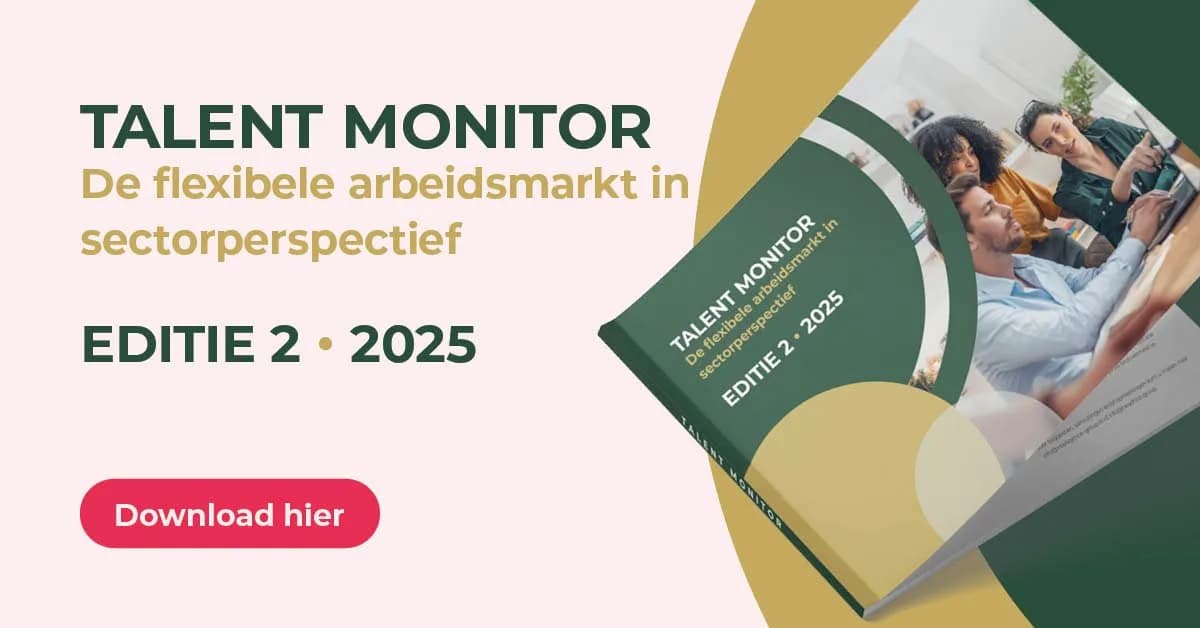More offers per assignment and average hourly rate exceeds €100
In the first quarter of 2025, the proportion of highly educated flexible workers compared to the total labour market of highly educated individuals has decreased to 22 percent. This is the first decline after years of increase. This is shown in the latest edition of the Talent Monitor[LH1] , a joint publication by labour market data specialist Intelligence Group and HR-tech service provider HeadFirst Group. It examines developments in the flexible labour market since 2022. This means that 865,000 are working flexibly: 645,000 as self-employed and 219,000 are seconded.

Increase in Labour Activity
Despite the decline in the proportion of flexible workers, more people are looking for assignments. For instance, a third of those working through a secondment agency (32 per cent) are actively seeking work. Similarly, among freelancers, the number of job seekers has been gradually increasing since mid-2023, reaching a quarter in the first quarter of this year.
Marion van Happen, CEO of HeadFirst Group, states: “The figures show that the need for flexible talent remains, but the playing field is changing. For clients, this offers opportunities: they have more choice of professionals and therefore more control. For professionals, it means they need to profile and position themselves more distinctly in an increasingly competitive assignment market.”
Increasing Competition
The number of assignments has been showing a declining trend for three years. While the index number peaked at 148 at the beginning of 2022 compared to the baseline level in the first quarter of 2020, the supply now fluctuates around that original zero point. It is, therefore, no surprise that competition among professionals, and thus the number of people responding to an assignment, is increasing. Since the first quarter of 2022, the number of responses per assignment has tripled. Where the index was still at 49, it has risen to 152 in the first quarter of this year. A tripling in just three years.
Record Hourly Rates Highlight the Value of Expertise
Against the trend of declining demand, average hourly rates in 2025 have risen to record highs. For the first time, the threshold of 100 euros per hour has been breached. This is an increase of 9 per cent compared to the first quarter of 2022 and 2 per cent compared to the same quarter last year. This underscores that organisations remain willing to invest in specialised knowledge and experience.
Geert-Jan Waasdorp, director of Intelligence Group, explains: “Autonomy and flexibility do not disappear from the labour landscape, on the contrary. Flexible professionals play a crucial role in an economy where agility, speed and innovation are essential. At the same time, it is remarkable that rates for flexible workers continue to rise, as declining demand and increasing supply normally result in a rate drop. This is at least a signal for organisations to critically review their hiring policies. Either independently or with the support of a good Managed Service Provider, using reliable, independent data.”
